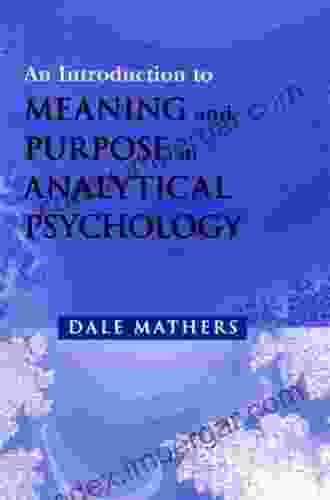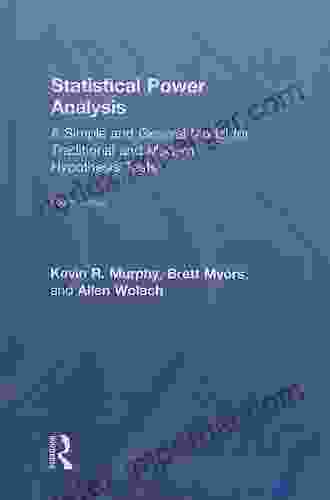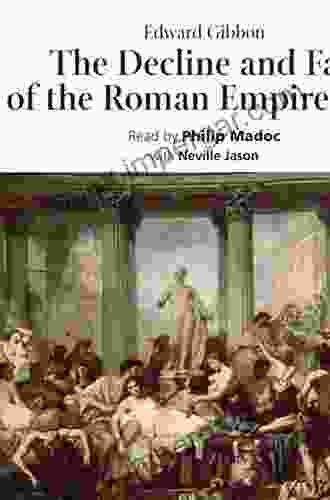Unveiling the Secrets of Hypothesis Testing: A Comprehensive Guide for Statistical Inference

Hypothesis testing is a fundamental pillar of statistical inference, providing a systematic framework for evaluating the plausibility of claims about a population based on sample data. This guide delves into the intricacies of hypothesis testing, exploring both traditional and modern methods, and equipping you with the knowledge and skills to navigate the world of statistical decision-making with confidence.
Traditional hypothesis testing, rooted in the frequentist approach, relies heavily on the concept of a null hypothesis. The null hypothesis (H0) represents the claim of no significant difference or effect, while the alternative hypothesis (Ha) posits the existence of a meaningful difference or effect.
The p-value, a crucial component of traditional hypothesis testing, measures the probability of obtaining a test statistic as extreme as or more extreme than the observed result, assuming the null hypothesis is true. A low p-value (typically less than 0.05) suggests a low likelihood of the observed result occurring by chance alone, providing support for the alternative hypothesis.
4.5 out of 5
| Language | : | English |
| File size | : | 16056 KB |
| Text-to-Speech | : | Enabled |
| Screen Reader | : | Supported |
| Enhanced typesetting | : | Enabled |
| Word Wise | : | Enabled |
| Print length | : | 336 pages |
Hypothesis testing involves the risk of making two types of errors:
- Type I error (false positive): Rejecting the null hypothesis when it is actually true. The probability of a Type I error is controlled by the significance level (α),typically set at 0.05.
- Type II error (false negative): Failing to reject the null hypothesis when it is actually false. The probability of a Type II error depends on the effect size, sample size, and significance level.
While traditional methods remain widely used, modern hypothesis testing techniques offer alternative approaches that overcome some limitations of the frequentist approach.
Confidence intervals provide a range of plausible values for an unknown population parameter, based on the sample data. The width of the confidence interval is influenced by the sample size, variability, and confidence level.
The likelihood ratio test compares the likelihood of the data under the null and alternative hypotheses. The ratio of these likelihoods, known as the likelihood ratio, is used to assess the evidence in favor of one hypothesis over the other.
Bayesian hypothesis testing incorporates prior knowledge or beliefs about the population into the analysis. It provides a probability distribution for the unknown parameter, which is updated based on the observed data.
The choice between traditional and modern hypothesis testing methods depends on the specific research question, data characteristics, and underlying assumptions.
Traditional methods are more straightforward and widely understood, but they can be sensitive to sample size and may not provide as much flexibility as modern methods.
Modern methods, such as confidence intervals and Bayesian analysis, offer greater flexibility and can incorporate prior knowledge, but they can be more computationally intensive and require a deeper understanding of statistical concepts.
Hypothesis testing finds applications in a vast array of scientific disciplines, including:
- Medical research: Testing the effectiveness of new treatments or the association between risk factors and diseases.
- Social sciences: Examining the impact of interventions on social behavior or the relationships between variables in social systems.
- Business and finance: Assessing the performance of investment portfolios or forecasting future economic trends.
- Quality control: Evaluating the effectiveness of manufacturing processes or ensuring compliance with industry standards.
Hypothesis testing is a powerful tool for drawing inferences about populations based on sample data. Understanding the principles and methods of hypothesis testing is essential for researchers, practitioners, and anyone seeking to make informed decisions based on statistical evidence. This guide provides a comprehensive overview of traditional and modern hypothesis testing, empowering you to navigate the complexities of statistical inference with confidence and rigor.
4.5 out of 5
| Language | : | English |
| File size | : | 16056 KB |
| Text-to-Speech | : | Enabled |
| Screen Reader | : | Supported |
| Enhanced typesetting | : | Enabled |
| Word Wise | : | Enabled |
| Print length | : | 336 pages |
Do you want to contribute by writing guest posts on this blog?
Please contact us and send us a resume of previous articles that you have written.
 Book
Book Novel
Novel Page
Page Chapter
Chapter Text
Text Story
Story Genre
Genre Reader
Reader Library
Library Paperback
Paperback E-book
E-book Magazine
Magazine Newspaper
Newspaper Paragraph
Paragraph Sentence
Sentence Bookmark
Bookmark Shelf
Shelf Glossary
Glossary Bibliography
Bibliography Foreword
Foreword Preface
Preface Synopsis
Synopsis Annotation
Annotation Footnote
Footnote Manuscript
Manuscript Scroll
Scroll Codex
Codex Tome
Tome Bestseller
Bestseller Classics
Classics Library card
Library card Narrative
Narrative Biography
Biography Autobiography
Autobiography Memoir
Memoir Reference
Reference Encyclopedia
Encyclopedia Bridgette Sharp
Bridgette Sharp Theodor W Adorno
Theodor W Adorno Bryn D Davis
Bryn D Davis Bridgett Miller
Bridgett Miller William C Parke
William C Parke Leonard Mlodinow
Leonard Mlodinow Businessnews Publishing
Businessnews Publishing Bryan K Fair
Bryan K Fair Bob Parket
Bob Parket Natalie Starkey
Natalie Starkey Chris Baker
Chris Baker Bob Drury
Bob Drury Brandon D Crowe
Brandon D Crowe Maria Mcmahon
Maria Mcmahon Sunday Adelaja
Sunday Adelaja Bridget Mccrate Protus
Bridget Mccrate Protus Kim Han
Kim Han Brydon M Dewitt
Brydon M Dewitt Bryan M Jack
Bryan M Jack Brett Christophers
Brett Christophers
Light bulbAdvertise smarter! Our strategic ad space ensures maximum exposure. Reserve your spot today!

 J.R.R. Tolkien"D-Day's Forgotten Heroes: Unlocking the Secrets of the 1944 Amiens Jail...
J.R.R. Tolkien"D-Day's Forgotten Heroes: Unlocking the Secrets of the 1944 Amiens Jail...
 Aleksandr Pushkin**Unlock the Secrets of Broadcast News Production with 'Broadcast News...
Aleksandr Pushkin**Unlock the Secrets of Broadcast News Production with 'Broadcast News...
 Gabriel Garcia MarquezMaking Peace With Autism: The Essential Guide to Navigating the Spectrum
Gabriel Garcia MarquezMaking Peace With Autism: The Essential Guide to Navigating the Spectrum Jerome BlairFollow ·7.6k
Jerome BlairFollow ·7.6k Liam WardFollow ·2.4k
Liam WardFollow ·2.4k W. Somerset MaughamFollow ·3.3k
W. Somerset MaughamFollow ·3.3k Felipe BlairFollow ·10.1k
Felipe BlairFollow ·10.1k Benjamin StoneFollow ·2.3k
Benjamin StoneFollow ·2.3k Heath PowellFollow ·6k
Heath PowellFollow ·6k Marvin HayesFollow ·16.6k
Marvin HayesFollow ·16.6k Diego BlairFollow ·15.7k
Diego BlairFollow ·15.7k

 Gary Cox
Gary CoxUnlocking Meaning and Purpose in Life: An Exploration of...
In an increasingly...

 Eric Hayes
Eric HayesMemoirs of the Early Pioneer Settlers of Ohio Illustrated
A Window into the Lives of Courageous...

 J.R.R. Tolkien
J.R.R. TolkienThe Montgomerys and Their Descendants: A Saga of Courage,...
Prepare to be...

 Avery Simmons
Avery SimmonsThe Rifle Musket: The Dawn of Modern Infantry Warfare
: The rifle musket, a revolutionary...

 Jesse Bell
Jesse BellUnlock the Power of Excel with VBA and Macros: A...
Microsoft Excel is a powerful spreadsheet...
4.5 out of 5
| Language | : | English |
| File size | : | 16056 KB |
| Text-to-Speech | : | Enabled |
| Screen Reader | : | Supported |
| Enhanced typesetting | : | Enabled |
| Word Wise | : | Enabled |
| Print length | : | 336 pages |








